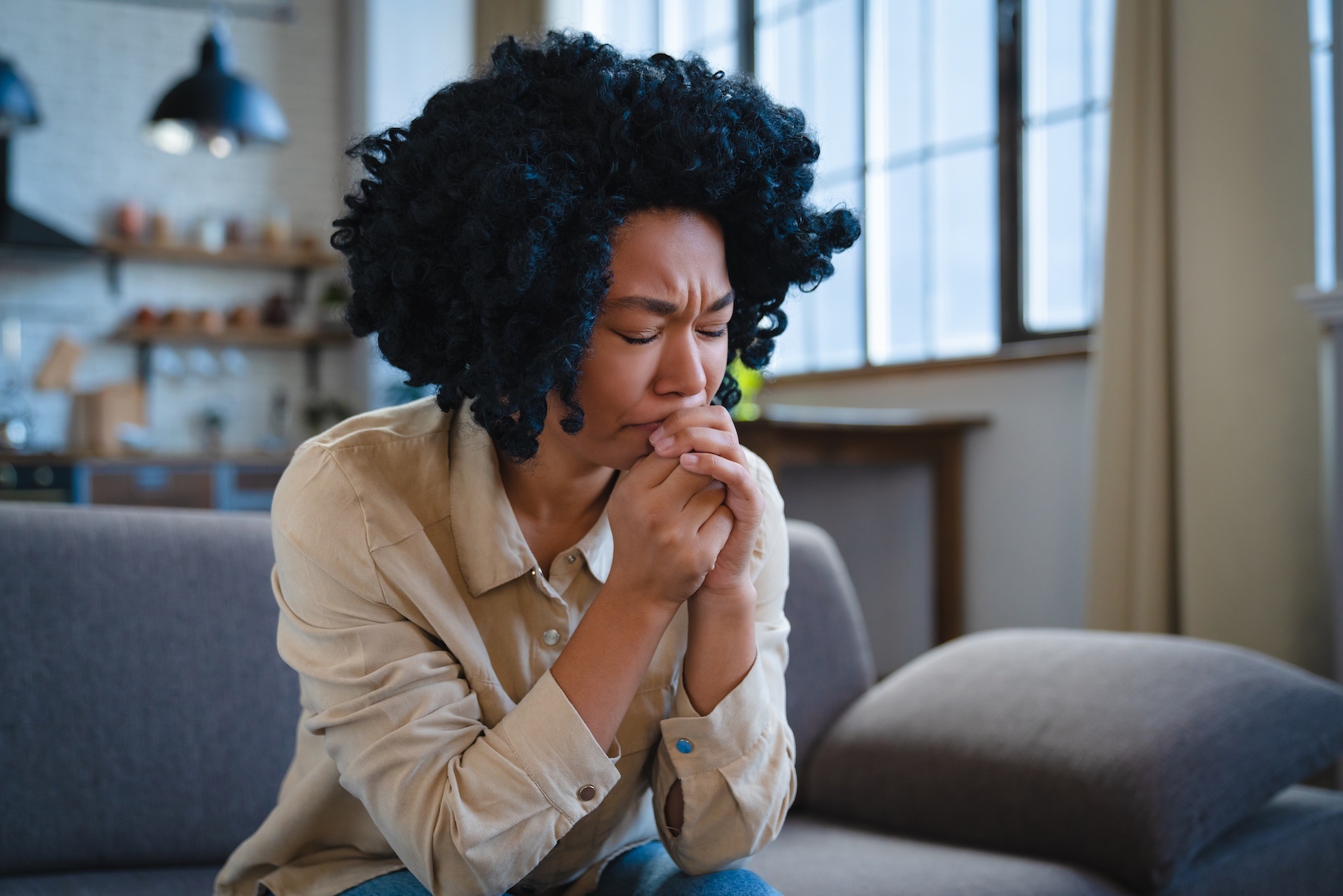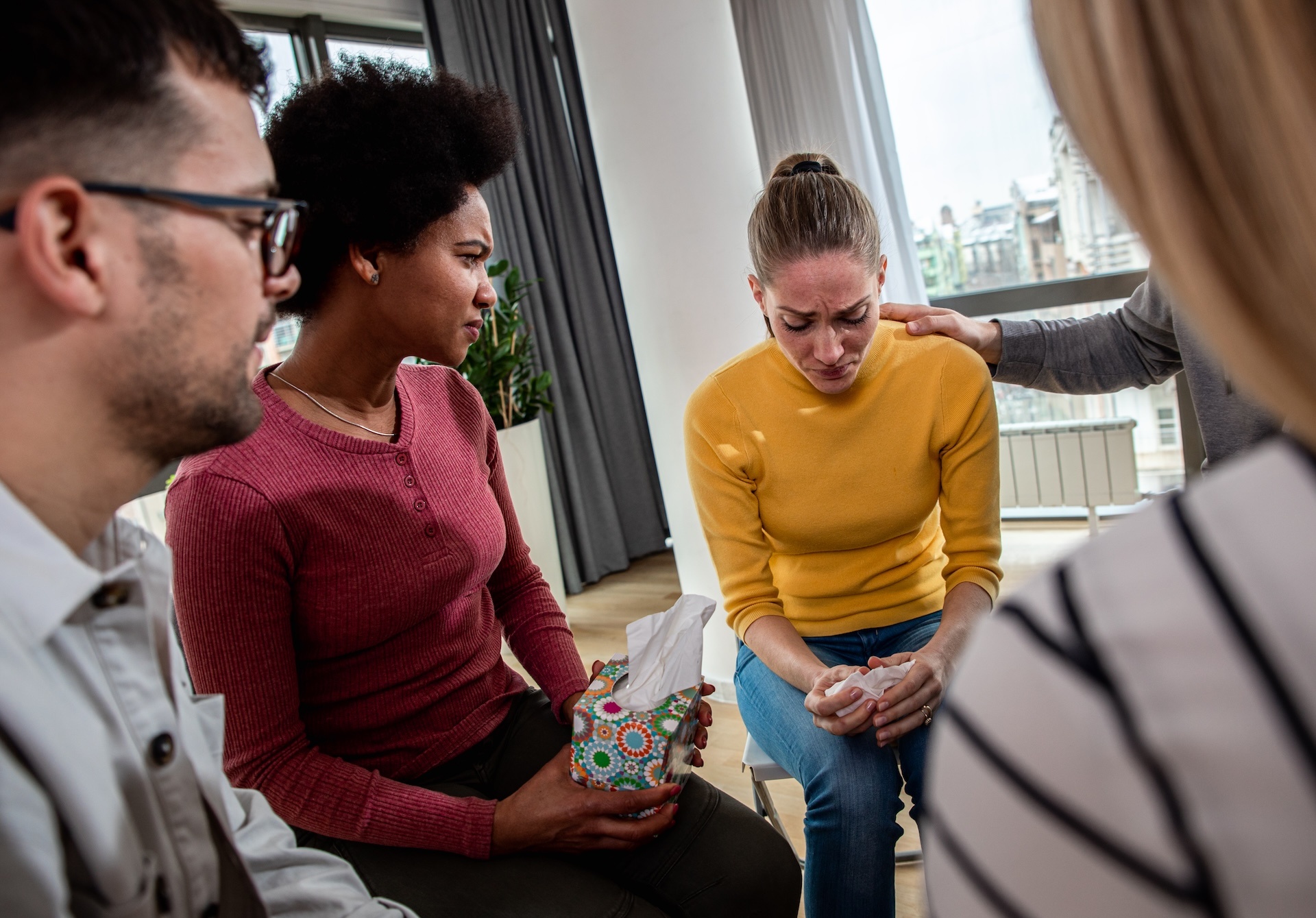Anxiety Disorder Treatment in Los Angeles


Looking for effective anxiety disorder treatment near me in Los Angeles? Discover the best therapy options tailored to your needs and start feeling better today.
Anxiety disorders are more than just occasional worry or stress—they can significantly disrupt daily life, making it difficult to work, maintain relationships, or even complete basic tasks. From constant overthinking to full-blown panic attacks, the symptoms vary but are always real. That’s why finding the right treatment isn’t one-size-fits-all. Effective care must be tailored to your unique experience and needs.
At The Forge Recovery Center, we specialize in personalized treatment plans that go beyond symptom management. Whether you're facing anxiety alone or alongside addiction, we’re here to help you build a healthier, more stable life—starting today.
Understanding Anxiety Disorders

Anxiety disorders are a group of mental health conditions characterized by excessive fear, worry, or nervousness that interferes with daily life. Unlike occasional stress or anxiety, these disorders are persistent and often worsen over time without treatment.
Here are the most common types:
Generalized Anxiety Disorder (GAD): Chronic worry about everyday events, even when there's little or no reason to worry. People with GAD often feel on edge, fatigued, and struggle to concentrate.
Panic Disorder: Recurrent, unexpected panic attacks—sudden waves of intense fear with symptoms like a racing heart, shortness of breath, or dizziness. Many live in fear of the next attack.
Social Anxiety Disorder: More than just shyness, this involves intense fear of being judged, embarrassed, or rejected in social situations, often leading to avoidance.
Specific Phobias: Intense, irrational fear of particular objects or situations—like flying, heights, or needles—that go beyond normal caution and can trigger panic responses.
According to the National Institute of Mental Health, nearly 1 in 3 adults in the U.S. will experience an anxiety disorder at some point. Despite how common they are, many people go undiagnosed or untreated. Early, personalized care—such as Cognitive Behavioral Therapy—can drastically improve quality of life, helping individuals regain control and function more confidently in daily life.
Therapeutic Approaches for Anxiety Disorders
Anxiety disorders are treatable, but effective care depends on matching the right approach to each individual’s needs. Below are the most widely used and evidence-based treatment methods that have helped millions regain control over their lives.
Cognitive Behavioral Therapy (CBT)
CBT is one of the most effective treatments for anxiety disorders. It focuses on identifying and changing negative thought patterns that fuel anxiety. Rather than just managing symptoms, CBT helps individuals understand how their thoughts, feelings, and behaviors are connected.
Key techniques include:
Cognitive restructuring: Challenging irrational or harmful thoughts and replacing them with more realistic ones.
Exposure therapy: Gradually confronting feared situations to reduce avoidance and anxiety over time.
According to the Mayo Clinic, CBT consistently outperforms other forms of therapy for anxiety, particularly when tailored to the specific type of disorder.
Exposure Therapy
Exposure therapy is a specialized CBT technique designed to desensitize individuals to anxiety triggers. It works by systematically and gradually exposing a person to the source of their fear in a controlled setting.
For example, someone with a fear of public speaking might start by imagining speaking in front of a group, then progress to practicing in real settings. Over time, the brain learns that the feared situation isn’t dangerous, reducing the automatic anxiety response.
As noted by the Anxiety and Depression Association of America (ADAA), exposure therapy is especially effective for phobias, social anxiety, and PTSD.
Medication Management
Medications can be a vital part of treatment—especially for moderate to severe anxiety disorders. The most commonly prescribed medications include:
SSRIs (Selective Serotonin Reuptake Inhibitors): Often the first-line treatment, helping regulate mood by increasing serotonin levels.
Benzodiazepines: Fast-acting medications used for short-term relief of acute anxiety symptoms.
While medication can be highly effective, it should always be managed under the supervision of a qualified medical professional due to the risk of side effects, dependency (in the case of benzodiazepines), and the need for ongoing evaluation and adjustment.
Mindfulness and Relaxation Techniques
Mindfulness practices are increasingly being integrated into treatment plans for anxiety. These techniques train the mind to stay grounded in the present moment, which helps reduce the racing thoughts and physical tension that often come with anxiety.
Common strategies include:
Meditation
Deep breathing exercises
Progressive muscle relaxation
Mindful movement (like yoga or tai chi)
The ADAA recommends these methods as complementary tools that can be used alongside therapy or medication to enhance overall well-being.
Support Groups and Peer Support
Anxiety can feel isolating—but it doesn’t have to be. Support groups offer a safe space to share experiences, gain perspective, and learn from others facing similar struggles. Whether in-person or virtual, peer support helps reduce stigma and reinforces the idea that healing is possible.
Groups often focus on:
Building coping skills
Sharing practical strategies
Offering emotional validation and encouragement
According to the ADAA, peer support can be a powerful motivator and supplement to formal treatment, especially for those who feel alone in their experience.
Each of these approaches can be effective on its own, but many people benefit most from a combination tailored to their unique needs. At The Forge Recovery Center, we build personalized treatment plans that integrate these proven therapies, ensuring each person gets the support and tools they need to thrive.
Are You Struggling with Mental Health or Addiction?
We Can Help. Call Us Now!
CALL: 877-839-1772
Choosing the Right Treatment in Los Angeles: 5 Things to Consider

Finding the best anxiety treatment isn’t about picking the first option you see—it’s about choosing what fits you. Here’s what to consider when evaluating therapy options in Los Angeles:
What Type of Anxiety Disorder Are You Dealing With?
Not all anxiety is the same.
Generalized Anxiety Disorder (GAD) involves constant worry.
Panic Disorder includes sudden, intense attacks.
Social Anxiety or specific phobias each require a different approach.
The right treatment depends on the specific symptoms you’re facing.
How Comfortable Are You with Different Treatment Styles?
Some people prefer talk therapy like CBT. Others might respond better to medication, mindfulness, or group support.
If sitting in a therapy office feels overwhelming, virtual or hybrid models might be more approachable.
Is the Treatment Center Easy to Access?
Logistics matter.
Is it close to home or work?
Do they offer flexible scheduling?
Is telehealth an option?
Making treatment accessible increases the likelihood that you’ll stick with it.
Are They Offering a Personalized Treatment Plan?
One-size-fits-all doesn’t work for mental health.
Look for providers who take time to understand your story and create a plan tailored to your specific needs—not just a standard checklist of therapies.
Why The Forge Recovery Center Might Be Right for You
At The Forge Recovery Center, we don’t just treat anxiety—we treat people.
Our team crafts personalized treatment plans built around your goals, lifestyle, and the type of anxiety you’re facing. Whether it’s therapy, medication support, mindfulness, or a mix of approaches, we make sure the plan fits you. And we’re right here in Los Angeles, ready to help.
The Forge Recovery Center’s Approach

At The Forge Recovery Center, our mission is simple: to help people build better lives by addressing the root causes of mental health and addiction struggles—not just the symptoms. We believe true recovery comes from personalized, compassionate care that treats the whole person.
That’s why every treatment plan we create is tailored to the individual. Whether you’re struggling with an anxiety disorder, substance use, or both, we design a path forward that fits your unique challenges and goals. Our team blends evidence-based therapies—like CBT, exposure therapy, mindfulness, and medication management—with peer support and lifestyle guidance to offer truly comprehensive care.
No two people are the same. Your recovery shouldn't be either. At The Forge Recovery Center, we meet you where you are—and walk with you toward lasting change.
Are You Struggling with Mental Health or Addiction?
We Can Help. Call Us Now!
CALL: 877-839-1772
Anxiety Taking Over Your Life? We’ll Help You Take It Back
Living with anxiety can feel overwhelming—but it doesn’t have to stay that way. The right treatment can change everything, and it starts with finding care that actually fits your life. At The Forge Recovery Center, we offer personalized, evidence-based support for anxiety and co-occurring disorders like substance use. Whether you're just starting to explore treatment or looking for a better approach, we’re here to help you take the first step toward lasting recovery. You don’t have to face this alone—real healing starts here.
Are You Struggling with Mental Health or Addiction?
We Can Help. Call Us Now!
CALL: 877-839-1772





